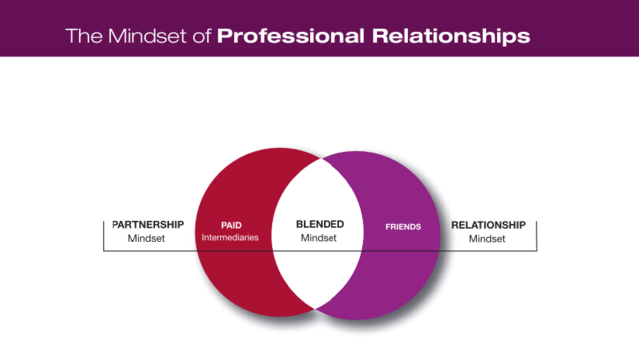Relationships
Can You Build Strategic Relationships That Are Also Authentic?
On "good and useful" men.
Posted May 20, 2022 Reviewed by Tyler Woods
Key points
- It is important to have a strategic focus on where you develop professional relationships, as time is a scarce resource.
- People admire authenticity in people they deal with; a perceived lack of authenticity will harm your ability to build trusted relationships.
- It's possible to blend a strategic approach with a natural relationship mindset, building relationships with people you need and those you like.
- You won't build rapport with everyone, but you can develop mutual respect. Don't try to force others to like you.
In 1823 the antislavery crusader and Member of Parliament William Wilberforce wrote to his son, advising him to “Never omit any opportunity to become acquainted with any good or useful man. More perhaps depends on the selection of acquaintance than on any other circumstance of life.”
This sounds like very good advice, particularly from a man who worked closely with fellow MPs across different factions in Parliament (at a time before formal political parties in British politics were established) and whose career's work rested upon his ability to find common ground and forge partnerships with friends and foe alike.
Yet the choice of the word "useful" as a description of fellow men might turn your stomach. Many people are repelled by any suggestion of a transactional nature to developing relationships, not wanting to be seen to use or manipulate others’ emotions or affections towards their own ends.
In my experience, one of the most commonly used words to describe positive traits people like in others is "authenticity." Any suggestion of an ulterior motive in building relationships diminishes the impression of authentic and sincere engagement.
How does such a belief affect our ability to develop a strong professional network well-placed to support us in our roles and throughout our careers? If we follow William Wilberforce’s advice, we can certainly seek out "good" men (and women), but will they necessarily be the right people to help us to achieve our objectives? And if we only look for "useful" people, won’t others see through us?
Once you are perceived to be inauthentic, your circle of friends is likely to diminish in both size and depth, not grow stronger.
Can You Be Too Transactional?
Not long ago, leadership expert Luca Signoretti delivered a talk on networking in which most of the advice he gave centered on what you could give to and get from a new contact. It was very transactional from the first interaction. I felt it differed significantly from my approach, which is much more relationship-focused and revolves around developing a network of trusted connections first. Once your network is established and trust is built, people want to help each other and you have a much more valuable resource for everyone involved.
In discussions, Signoretti and I found that our approaches are not as different as I first imagined and, in fact, complement each other. He described his approach to connecting as "looking for a partner." For him, you need to be conscious of the possible return from any partnership, particularly when time and energy are limited.
That makes complete sense: Having clarity on your "Return on Relationships"[1] in a busy world will help you manage your investment in developing those relationships effectively. But you need to do so without losing your authenticity and natural way of engaging with people.
A Blended Mindset

The truth is that the best approach is neither wholly transactional nor relational. A "blended" approach to building relationships is the key. You need to adopt a partnership mindset (using Signoretti's language) and identify the people you need to know that can help you achieve your goals in a clear and defined way.
At the same time, however, you should not write others off. Develop strong relationships with people you like and with whom rapport comes naturally. Even if you don’t know why just yet.
Whatever the reason for connection, it is imperative that you behave the same way towards everyone. Look for connection points—areas of interest, friends and colleagues, or experiences in common—and try to build a conversation from there.
Show a genuine interest in others and, as relationships develop, focus as much (if not more) on what you can do for them as on what they can do for you. Reach out when you don’t have an agenda, and never offer or seek support as part of a quid pro quo arrangement. Instead, adopt an abundance mentality of helping your network whenever it is easy and meaningful for you to do so.
You won’t find that magical rapport with everyone. Some of your professional relationships will be based on mutual respect rather than mutual friendship. And that is fine, don’t try to force what’s not there naturally.
It’s fine to take a strategic approach to developing relationships, but the connection will become deeper and more powerful if you focus on finding those commonalities and building the rapport before you worry about what you can give to each other.
Partnerships based on deep relationships are likely to last longer and produce greater returns than those solely founded on mutual convenience.
You can seek to become acquainted with both "good" and "useful" men, but the key is to make them more than mere acquaintances and develop strong, robust and, above all, authentic relationships with them.
[1] I first heard this expression coined by Rory Murray some 15 years ago and have always wished I’d come up with it myself!
References
‘The Life of William Wilberforce’, Robert Isaac Wilberforce, Samuel Wilberforce, Philadelphia : Perkins, 1839.




